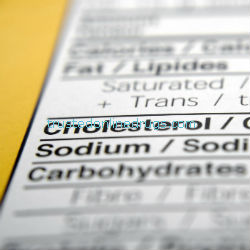 Getting too much sodium in your diet will cause your blood volume to increase, and that will put a strain on your blood vessels and heart. Recent dietary guidelines state that you should keep your daily sodium level under 2,300 mg, which translates to about 1 teaspoon. However, the American Heart Association recommends an even smaller amount of less than 1,500 mg.
Getting too much sodium in your diet will cause your blood volume to increase, and that will put a strain on your blood vessels and heart. Recent dietary guidelines state that you should keep your daily sodium level under 2,300 mg, which translates to about 1 teaspoon. However, the American Heart Association recommends an even smaller amount of less than 1,500 mg.
There are some foods that are obviously high in sodium, but other foods that you eat every day may be high sodium foods that you thought weren’t so bad for you. Check out the list below to find out if you’re hurting your health by eating these high sodium foods that you should actually be avoiding.
Deli Meat and Hot Dogs
Deli meat is loaded with sodium, as are hot dogs. A single hot dog could have around 700 mg of salt, and a single slice of deli ham could contain more than 300 mg of sodium. Opt to eat fresh meat instead of processed meats. But for your overall cardiovascular health, try to limit your meat intake overall.
Vegetable Juice
You might think that purchasing vegetable juice in a bottle is a good way to add a bit of extra nutrition to your daily diet. But the truth is that this is another one of those high sodium foods that you should limit. Read labels closely to see just how much sodium is in a beverage that you’re thinking about purchasing. Remember that sodium content will be reflected in a per serving size format. A low sodium serving would be 140 mg or less. If you want to reap the benefits of vegetable juice, it’s best to make it at home with a juicer.
Canned Foods
Before purchasing anything that’s in a can, take a look at the sodium content. Canned soup could have as many as 1,300 mg of salt, and canned vegetables could be very high in sodium as well. Instead, cook fresh soup at home using a low-sodium vegetable broth, and purchase fresh or frozen vegetables. If you do purchase canned vegetables, just be sure to rinse them with water to remove the excess sodium first.
Dairy Products
You might feel like you’re addicted to dairy, but the truth is that it’s best consumed in small amounts. Products like buttermilk, processed cheese, and cottage cheese are high in sodium. For example, just an ounce of American cheese could have 400 mg of salt.
Whether you’re trying to manage your blood pressure or prevent cardiovascular issues, consuming a low sodium diet is important, so avoid the foods above as much as possible.
* This article is for informational purposes only and not to be taken as medical advice. Always consult with your doctor before making any changes to your medications, supplements, diet, or exercise routine.